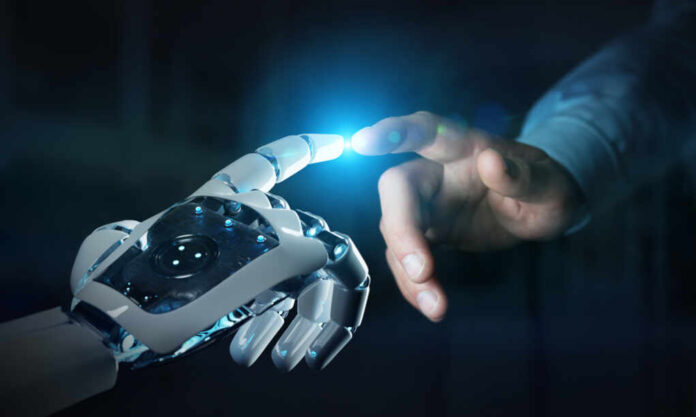
Corporate America is systematically replacing entry-level workers with AI automation, leaving an entire generation of young Americans facing what experts call a “job-pocalypse”.
Story Highlights
- Entry-level job postings plummeted 29 percentage points since January 2024 as corporations prioritize AI over new hires
- Gen Z employment in AI-exposed occupations declined 13% relative to older workers, with 58% of new graduates still job hunting
- Tech and finance sectors lead the automation charge, eliminating traditional career ladders for young Americans
- 75% of Gen Z now forced to upskill with AI tools just to compete, while corporations profit from reduced labor costs
Corporate AI Rush Decimates Entry-Level Opportunities
Stanford Digital Economy Lab research reveals corporations have slashed entry-level hiring by nearly 30% since early 2024, prioritizing artificial intelligence systems over human workers. The data shows employment for workers aged 22-25 in AI-exposed occupations dropped 13% compared to older employees, creating an unprecedented barrier to career entry.
Gen Z face ‘job-pocalypse’ as global firms prioritise AI over new hires, report says https://t.co/03wMzdK0Qb
— DX Today (@RickSpairDX) October 9, 2025
Young Americans Bear Disproportionate Automation Impact
The automation wave hits hardest where young workers traditionally gained experience, with tech, finance, and customer service sectors leading the elimination of human roles. Stanford researchers found declines concentrated in jobs where AI automates rather than augments human labor, effectively removing the bottom rungs of career ladders. This creates a structural problem where corporations benefit from AI efficiency while young Americans lose access to the work experience necessary for economic advancement.
Watch: The graduate ‘jobpocalypse’: Where have all the entry-level jobs gone?
Gig Economy Becomes Survival Strategy
Faced with corporate automation policies, 58% of new graduates remain unemployed in full-time positions, forcing many into gig work and alternative income streams. While 75% of Gen Z has adopted AI tools for upskilling, unequal access to formal training creates a digital divide that advantages those with resources. This shift represents a fundamental breakdown of the traditional employment contract, where corporations once provided entry-level training in exchange for developing loyal workforces.
Economic Foundations Under Threat
The systematic replacement of entry-level workers undermines the economic mobility that built America’s middle class, creating long-term risks for wage growth and job stability. Labor economists warn this “job-pocalypse” could exacerbate inequality and limit upward mobility for an entire generation. While the World Economic Forum suggests 97 million new AI-related roles may emerge, these positions require advanced skills that displaced entry-level workers cannot access without significant retraining investments that corporations refuse to make.
This corporate prioritization of AI over American workers represents a fundamental shift away from the employment practices that once provided pathways to prosperity. Young Americans now face the choice between accepting gig work instability or competing in an increasingly automated job market where traditional career development has been sacrificed for corporate efficiency gains.
Sources:
Canaries in the Coal Mine? Six Facts about the Recent Employment Effects of Artificial Intelligence
Gen Z workplace blueprint: future focused, fast moving
Graduating Into Uncertainty: AI’s Impact on Gen Z Careers
AI’s Rising Dominance Threatens Job Opportunities for Gen Z

























